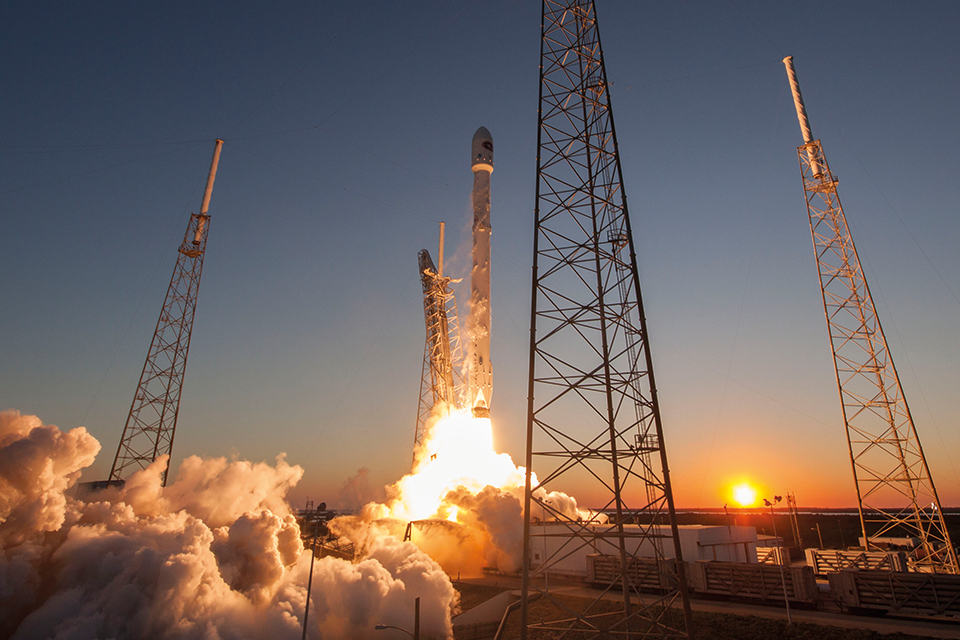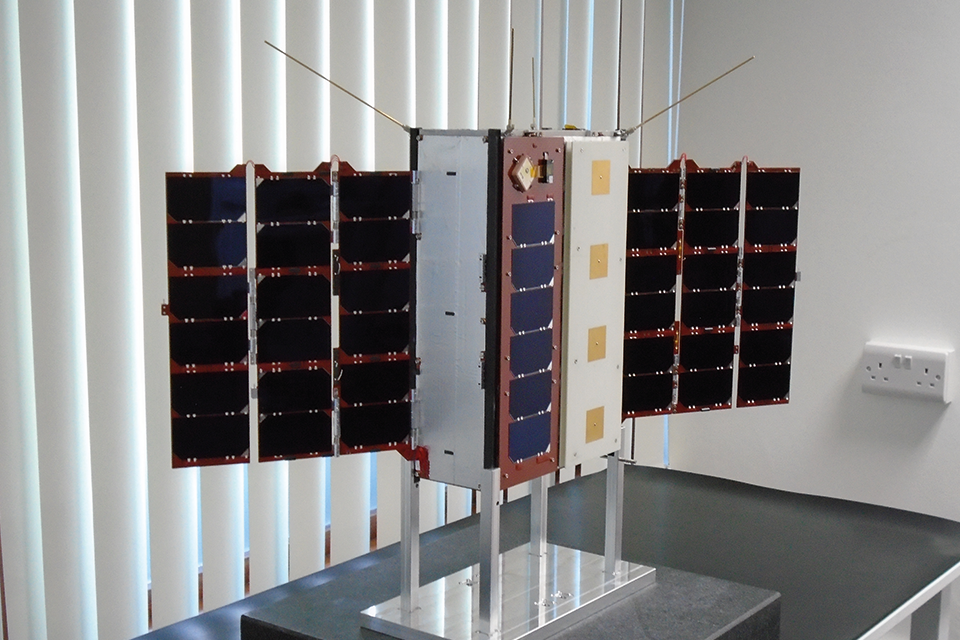Update, June 24: Launch postponed – next updates.
Monitoring and tackling climate change and tracking endangered wildlife are among the exciting features of three satellites built in the UK that will be launched on a SpaceX rocket on Friday, June 25th.
UK companies have received nearly £ 15 million from the UK Space Agency through the European Space Agency’s partnership program to develop the trio of satellites to come out of NASA’s Kennedy Space Center in Florida.
Lacuna Space, based at the Harwell Space Cluster in Oxfordshire, is revolutionizing the cost and ease of connecting sensors to the Internet, reaching every corner of the earth with the help of small satellites to support the Internet of Things.
The Lacuna sensors, which fit in the palm of your hand and work for years on a single battery charge, can be used to monitor the environment, track wildlife and help farmers by providing data on bovine and crop health and for water and soil management.

The satellites will be launched aboard the SpaceX Falcon 9. Credit: SpaceX
Science Minister Amanda Soloway said:
As we prepare to host the United Nations Climate Change Conference, COP26, in Glasgow later this year, the UK is leading the way in space exploration to tackle climate change by developing satellites that enable our scientists to world class to observe the environment with remarkable detail.
In addition to supporting climate ambitions, these satellites built by the UK will provide exciting innovations in remote monitoring and tracking, the start-up industry to offer new services that will help improve our lives.
Two of the satellites built by Spire in Glasgow will develop optical intersatellite connections (ISLs), which will provide a change in the way we receive large amounts of data from space to Earth. This will allow the constellations of satellites to become integrated networks in space, capable of delivering very large volumes of data to anywhere in the world, including remote and rural areas, disaster areas and the sea.
These improved data and better forecast analysis will improve our understanding of the environment and the impact we have on it.
Spire is backed by the UK Space Agency through the European Space Agency’s partnership program with a total of £ 9 million in total funding to develop a set of innovative technologies and data platforms, including a pair of satellites scheduled for tomorrow’s launch.
Elodie Viau, Director of Telecommunications and Integrated Applications at ESA, said:
ESA is proud to enable small and medium-sized enterprises in Europe to become providers of space missions and enter the space industry through programs such as Pioneer. It provides innovators and entrepreneurs with the means to access space through cost-effective processes, job creation and prosperity, and supporting the success of the European and Canadian space industries in a highly competitive global telecommunications market.
Teresa Condor, executive vice president and CEO of Spire Space Services, said:
At a critical time for our planet and with COP26, which took place later this year, we must be able to map and report on the rapidly changing phenomena of the Earth. This is the main purpose of the constellation Spir. Improved data and better predictive analysis help us further understand our environment and the impact we have on it.
Optical ISL allows us to deliver the most time-sensitive data faster and at higher volumes for critical applications such as time monitoring and forecasting.
The third satellite was built by Hampshire-based In-Space Missions, backed by £ 4.9 million in funding for this and future validation missions, which are expected to launch in 2022/2023. The Faraday Phoenix satellite includes payloads for six customers, including Airbus, Lacuna, SatixFy and Aeternum.

Lacuna sensors have been used to monitor king penguins. Credit: Lacuna Space
Doug Liddle, CEO of In-Space Missions, said:
The team here at In-Space is incredibly proud to launch our highly capable and innovative satellite, which came together in less than a year. We are especially excited to fly Falcon 9 from Cape Canaveral – a place with such an amazing history.
The In-Space satellite includes a demonstration payload for Lacuna Space, which is developing an innovative satellite IoT service, thanks to funding of £ 800,000. This is the next step in Lacuna’s space network, further enhancing the company’s ability to handle massive IoT deployments.
Rob Spurt, CEO of Lacuna, said:
Like the early days of the Internet, when it was difficult to imagine the impact of everyone connecting, there now seems to be an endless world of possibilities for connecting physical objects or “things.” There are many possible ways to do this in cities, but our service ensures that Britain’s countryside and even the most remote places in the world are part of this data revolution.
The SpaceX Falcon 9 rocket is to be launched from NASA’s Kennedy Space Center in Florida. The four-hour start-up window opens at 8:00 PM BST on Friday, June 25.
Taxi travel to space – other payloads on Faraday Phoenix’s mission:
The mission will manage the In-Space Babel payload as the first incarnation of a future digitally available payload with the Faraday service. This first version is high-speed, broadband software, defined with the ability to upload and practice a number of different applications – from tracking ship radars to creating heat maps for 4G mobile use.
Manchester-based SatixFy Space Systems is using the mission to demonstrate its satcom technology in space for the first time. The SatixFy computer will be the most capable product of its kind on the market, supporting up to 4Gbps data transmission and allowing companies to process large amounts of data in orbit. The Portsmouth-based Airbus Prometheus 1 payload with software-defined radio will be able to study the use of radio spectrum around the world from orbit, detect radar tracking of the Faraday Phoenix satellite and potentially identify and locate search and rescue beacons.

